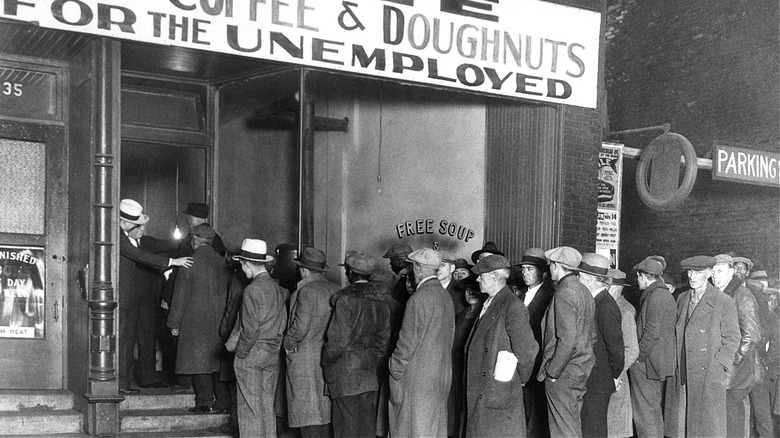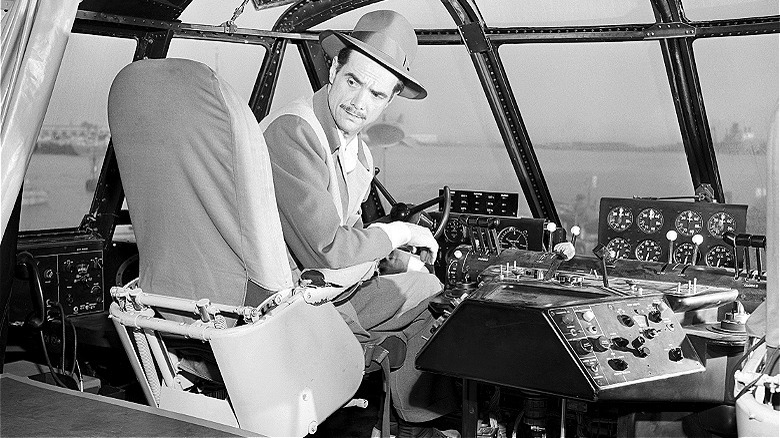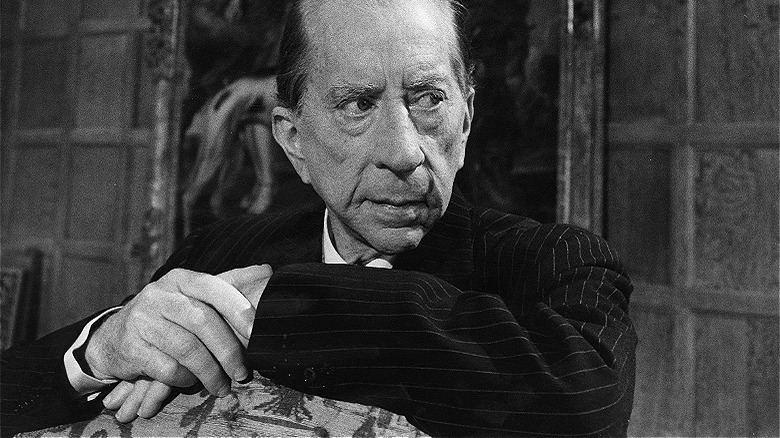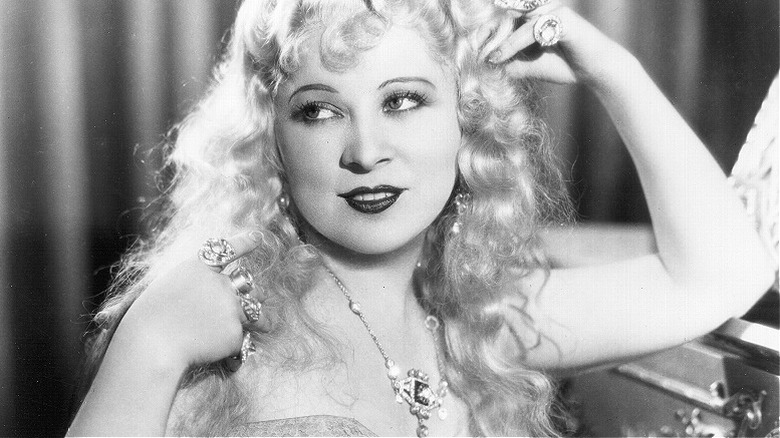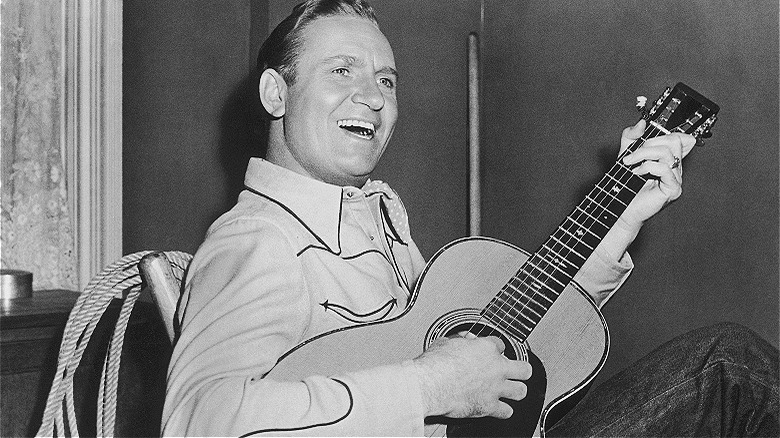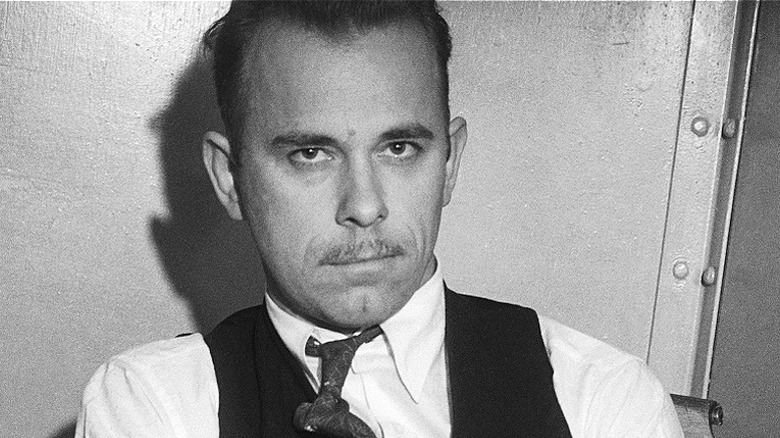The Richest People During The Great Depression
Images of the Great Depression haunt the pages of history, as well as our collective unconscious. Men selling apples on street corners or making runs on banks, women and children in bread lines, entire families alongside solo migrants walking dusty roads with the hope that they will one day lead to work, the Great Depression was a time of extreme economic downturn, both domestically and internationally. The 1929 stock market crash, intensified isolationism, sky-high unemployment, and other compounding fiscal nightmares did not have the good times rolling in from 1929 to 1939, at least, not for most.
Even people of means found themselves selling all of their property and possessions to survive during the Great Depression. Often, these were snapped up by the uber-wealthy, who could easily afford them, even during such hard times. Sometimes, means of production were purchased with a stroke of luck — and a wise investment — by someone who had only recently inherited money themselves.
Some fortunes were made during the Depression, while others were simply retained, no easy feat. During this time, some people planted the seeds of American businesses that would one day become household names, long after the Depression ended, like the McKee family and Little Debbie, George Jenkins and Publix grocery stores, and even the Gallo family and their wine. But who got rich or stayed rich during the Great Depression, while everyone else lost it all?
Howard Hughes
Howard Hughes grew up rich and got even richer during the Great Depression. In fact, the seeds of his eventual billion-dollar aerospace and defense empire were sown during this time. The filmmaker, aircraft designer, aggressively diverse hobbyist, and multi-business tycoon is perhaps more known these days for his eccentricities and a Leonardo DiCaprio-starring biopic than his business savvy — but make no mistake, this man was more than his infamous collection of mason jars.
Hughes inherited most of his father's oil-tool business — and the nearly million-dollar fortune that came with it — in 1923, when Hughes was just 18 years old. While many children of extreme wealth would be content to use their cash to fund a flashy playboy lifestyle, Hughes did more, pairing that lifestyle with his engineer brains and an entrepreneurial spirit. He used his money to make films in Hollywood and fly planes in the '20s, and to invest in aerospace technology.
While most of the U.S. was waiting in breadlines, this would-be billionaire was but a millionaire, taking to the skies. In the early 1930s, the aviation-obsessed Hughes created a new business division of his father's tool company: Hughes Aircraft Company. While the company would go on to major defense manufacturing subcontracts in the 1940s, Hughes spent the 1930s designing planes for his company to build, and for himself to fly. Howard Hughes broke speed records throughout the Great Depression with his planes — and set the stage for his future, even more stratospheric, wealth.
J. Paul Getty
Buying low when others were selling desperately is how oil businessman J. Paul Getty grew his already considerable fortune during the Great Depression. He used his millions to purchase panicky sellers' stocks for pennies on the dollar. "It is the opportunity of a lifetime to get oil companies for practically nothing," Getty wrote in a letter to his mother in 1932 (via University Archives).
As a child in the early 1900s, Getty's father moved the family from Minneapolis, Minnesota, to Bartlesville, Oklahoma, where George Getty promptly purchased and profited off of oil fields. The family moved to California in 1905, and Getty eventually joined the family business. Getty inherited in 1930 what would be considered a small fortune ($500,000) in comparison to the one he would build for himself, and he used the money (per his New York Times obituary) to slowly acquire various oil stocks and even companies in debt to expand his wealth.
J. Paul Getty acquired the Pacific Western Oil Corporation during the Depression, and continued to amass an oil fortune through his patient purchasing of stocks. Getty wasn't one to part easily with his cash when it came to anything other than stocks, of course. For example, he infamously negotiated with his grandson's kidnappers over a $16 million ransom. In his obituary, he is quoted as saying: "I have 14 other grandchildren and if I pay one penny now, then I'll have 14 kidnapped grandchildren." That attitude is how the rich stay rich — though maybe not the favorite grandparent.
Mae West
Not everyone who hit it big during the Great Depression was born with a silver spoon in their mouth, although this entertainer's lips are famous. Mae West, a bombshell writer-actor who inspired Salvador Dali's Lips sofas, was born poor, but she made a fortune during the Depression.
West was a Jazz Age It Girl, famous (and infamous) for her risqué humor and voluptuous physique. She worked the vaudeville circuit for much of her life, and broke through to bigger success when she wrote and starred in her own plays. West scandalized Broadway with a seductive play in 1926. The critics decried the work as smut, while audiences filled the seats — until, 375 performances in, Mae West was arrested for obscenity. She vamped for the press during her 10-day prison sentence on Welfare Island (now Roosevelt Island, via PBS) — and the vamping paid off.
In 1932, West became a movie star, playing bad girls with good humor. West negotiated a contract with Paramount Pictures that allowed her to write her own lines (like the famous "come up and see me sometime"), for upward of $300,000 a year, making her the second-highest-salaried person in the country at the time, second only to newspaper magnate William Randolph Hearst. The Hays Code and censorship dogged West, but no matter how much she was edited, her smart-mouthed and sexy underdog characters were beloved by Depression-era audiences looking for a relatable (and va-va-voom) reflection of their spirit onscreen.
Gene Autry
Some people sang for their supper during the Great Depression, but Gene Autry crooned for his doubloons. The legendary musician and actor started from humble beginnings. Autry grew up in Oklahoma, ranch-handing for his father and later working as a telegraph operator. Autry sang while he worked, and spent the late '20s doing various gigs and getting signed to the American Record Corporation (later to be known as Columbia Records).
His biggest gig was being the "singing cowboy" on Chicago's "National Barn Dance" radio show in 1934. Autry's songs and comedic stylings soon caught Hollywood's attention, and he became a movie star and a music icon. Autry appeared in more than 30 movies during the Great Depression, starting with "In Old Santa Fe." His movie money was more considerable than what he made in his telegraph days, and his popularization of a cowboy persona as attractive and well-dressed in Western wear — rather than a "hillbilly" — helped him build a massive audience. Perhaps more powerful than Autry's duds was his everyman-made-good story.
Gene Autry continued to diversify his investments after the Depression ended, with the seed money he made singing out on the movie-magic range. He even installed a permanent home for his traveling rodeo in Berwyn, Oklahoma, in 1939 in an effort to rejuvenate the town otherwise depressed by the dust bowl. Soon after, the town renamed itself to Gene Autry, Oklahoma. (Check out Money Digest's 10 best tips for investing in stocks as a beginner.)
John Dillinger
During the Great Depression, one man's loss could be another man's gain. When the millionaires scooped up foreclosed homes, farms, and businesses for a song, it was good business — but when the Dillinger Gang knocked over banks, they were made Public Enemy Number One.
American gangster John Dillinger was born (and would die) in Chicago, Illinois, a hotbed of semi- organized criminals making their fortunes at gunpoint. Dillinger spent his childhood pulling petty crimes and doing jail time, but by the early 1930s, he was ready to level up and make real money. Dillinger and his gang were known for using a network of accomplices and military tactics to rob banks efficiently and effectively. Together with other infamous criminals like Baby Face Nelson and Harry "Pete" Pierpont, Dillinger made $300,000 in his take from a dozen banks in the mid-1930s, nearly $7 million in today's money.
Despite Dillinger's violent means meeting violent ends, he was beloved by his public during the Great Depression. Dillinger stories filled the papers, but it was not just cold hard cash he stole. Over all of his bank heists, Dillinger stole thousands of mortgage records and destroyed them, freeing thousands of strangers from debt.
